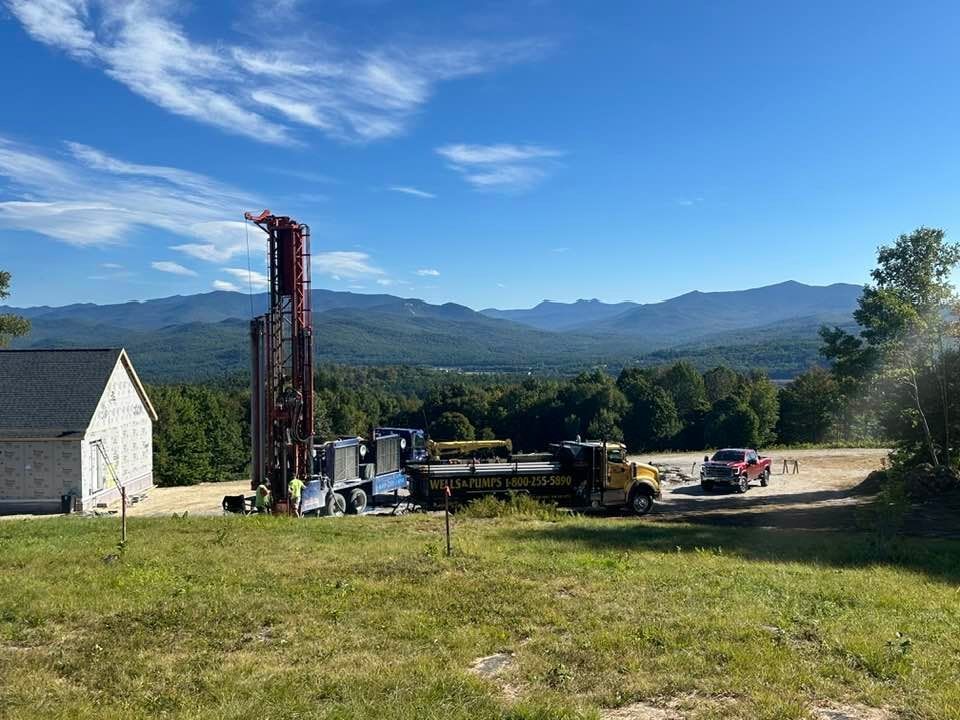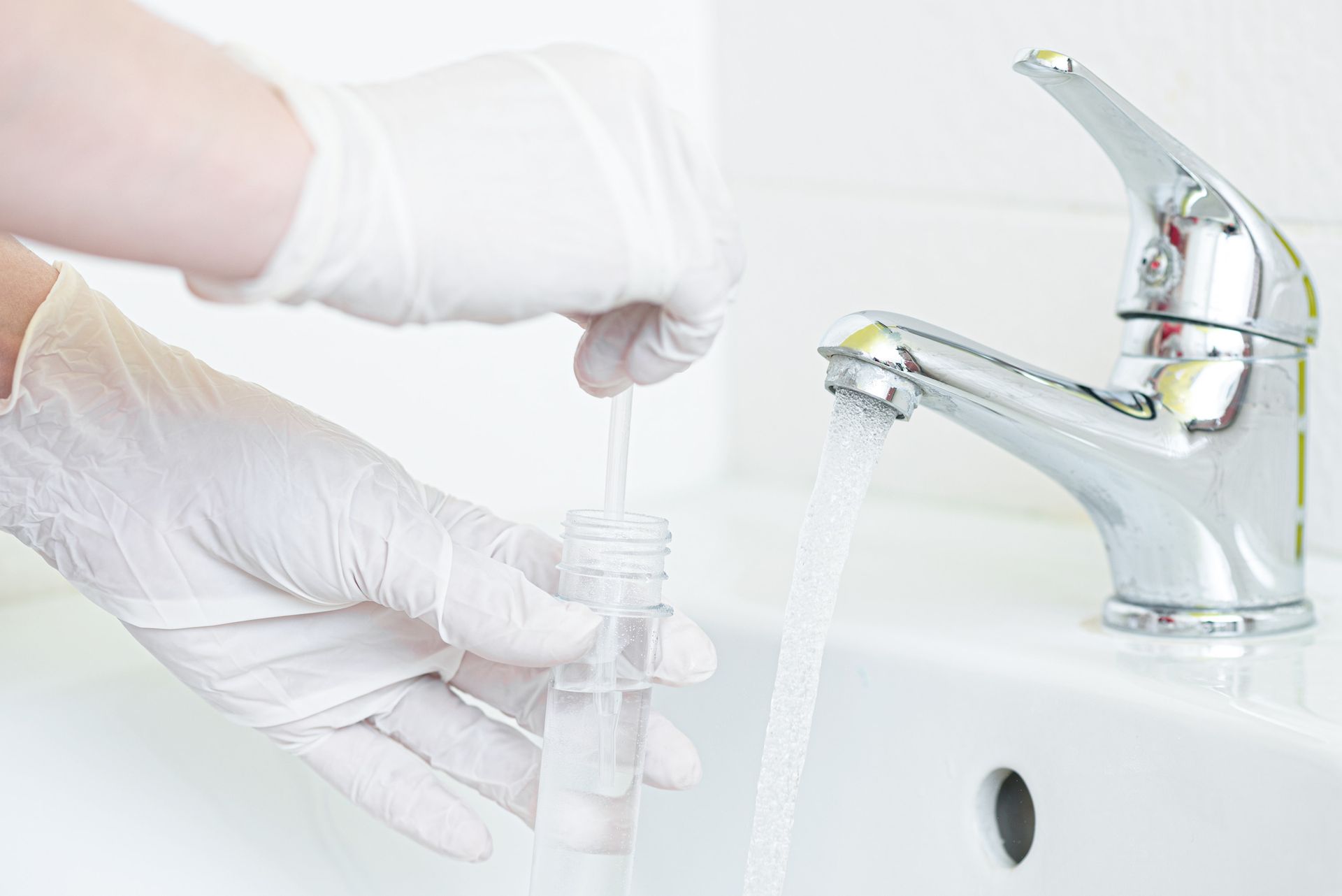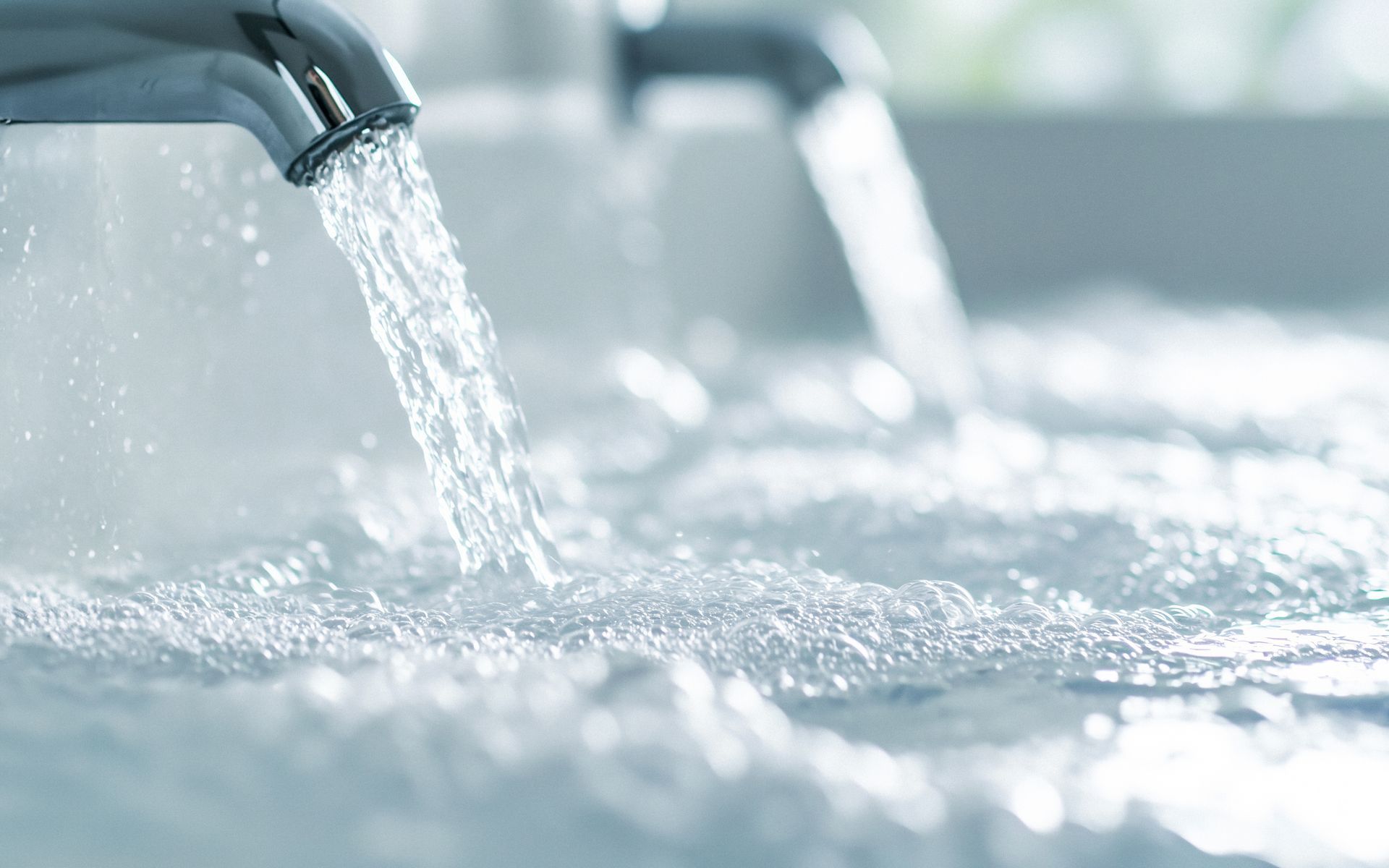Water treatment, water testing, well drilling and hydro-fracking services for VT, NH, and MA.
Do you need emergency well water service?
Well Water Stinks: Causes and Solutions for Smelly Water
If your well water stinks, it’s often due to bacteria, sulfur, or organic matter. This article will explain the common causes and how to fix them.
Key Takeaways
- Identifying the source of unpleasant odors in well water is crucial for addressing the issue, often requiring regular maintenance and inspections.
- Common odors such as rotten egg, musty, or sewage-like smells can indicate bacterial growth or organic contamination, necessitating specific treatments like shock chlorination and filtration systems.
- Preventive measures, including regular water testing and maintenance, are essential for ensuring high water quality and preventing recurring odor issues.
Identifying the Source of the Odor

Pinpointing the source of the odor is the first step in addressing the problem. Persistent smells throughout the house typically indicate issues with the main water supply. If odors occur at all water faucets, it’s likely a problem with the well or the main supply line. However, if the smell dissipates after running the water for a few minutes, it might be related to your plumbing system.
Regular well maintenance can detect and mitigate odor issues early. Scheduled inspections are crucial for maintaining proper safety precautions in a safe drinking water system.
To address an odor problem, check if it’s coming from cold or hot water sources and whether the smell is persistent or intermittent.
Cold Water vs. Hot Water Odors
Odors in cold water and hot water can often stem from different sources. If you notice that the odor is mainly present when using hot water, it’s likely an issue with your water heater. Certain smells, especially a sewage smell, often indicate bacterial growth within the water heater. To determine where the odor is coming from, pour water from both the hot and cold taps into separate glasses and smell them in a different room. This simple test can help you identify if your water heater is the culprit.
Specific smells in hot water can suggest bacterial growth within the heater, which thrives in warm environments. If the odor disappears after running the water for a few minutes, it may be linked to the household plumbing system rather than the municipal water supply. Regular maintenance of water heaters can prevent these issues.
Persistent vs. Intermittent Odors
Understanding whether the odor is persistent or intermittent can provide valuable clues about its source. Smells at specific faucets typically point to issues in the fixtures or connected plumbing, whereas a house-wide odor might indicate a larger problem with the water source or plumbing system.
To determine if the odor originates from the drain rather than the water from the well, fill a glass with tap water and swirl it. If there is no odor, this suggests that the issue lies with the drain rather than the water supply. Identifying these patterns can help you and any professionals you might hire to diagnose and address the problem effectively.
Common Well Water Odors and Their Causes

Common odors found in well water include hydrogen sulfide, musty or earthy smells, and fishy or sewage-like smells. Identifying these odors can help you determine the underlying cause and take appropriate action. Hydrogen sulfide, for instance, is often responsible for a rotten egg odor, which can arise from natural decay processes or the presence of sulfur bacteria in wells.
Persistent odors may indicate ongoing problems with the water source or a combination of source and plumbing issues. A bad smell in hot water but not cold may suggest hydrogen sulfide gas from iron and sulfur bacteria in the water heater.
Recognizing these common odors can help you find the appropriate solution.
Rotten Egg Smell (Hydrogen Sulfide)
The presence of hydrogen sulfide gas in well water is typically indicated by a strong rotten egg odor. This smell is often due to sulfur bacteria or hydrogen sulfide that can produce hydrogen sulfide gas by reactions with iron and sulfur bacteria in oxygen-deficient environments like deep wells. These bacteria can thrive in such conditions, causing significant odor problems.
Hydrogen sulfide can corrode plumbing metals, creating ferrous sulfide or black water. Prolonged exposure to elevated levels can lead to health issues such as nausea, headaches, and even more severe symptoms like delirium and convulsions. Additionally, hydrogen sulfide can discolor and alter the taste of food and beverages. Addressing this issue promptly helps maintain both water quality and health.
Regular testing of well water can help identify the presence of hydrogen sulfide and other contaminants early on. If you detect a persistent rotten egg smell, it’s crucial to take corrective actions such as shock chlorination or installing appropriate filtration systems to address issues like rotten eggs.
Musty or Earthy Smell
Musty or earthy smells in well water often result from organic contamination, including decaying plant matter and microbial activity. These odors can indicate the presence of organic debris, which can infiltrate the water supply through soil and decaying vegetation. Such contamination can affect water quality and may signal the need for further investigation and treatment.
An earthy or musty smell requires examining the water source and possibly installing filtration systems.
Fishy or Sewage-Like Smell
Fishy smells in water are often caused by organic matter or bacterial growth. The presence of coliform bacteria in cold water can lead to a sewage-like odor, indicating potential contamination. A sewage-like smell necessitates testing for bacterial contamination, as water smells can be a sign of issues that need addressing.
Ongoing smells generally indicate deeper contamination within the water supply or plumbing system. Installing a filtration system can effectively remove fishy smells from the water. Maintaining water quality is vital for health and comfort.
Solutions for Smelly Well Water

Addressing smelly well water involves various solutions, depending on the type of odor and its source. Shock chlorination is a common method to sanitize a well and eliminate odors, requiring careful measurement of bleach based on the well’s water volume. If bacteria is found in the water heater, it’s crucial to treat and flush the heater or replace the anode rod to prevent odors.
Filtration systems can improve well water quality by removing odor-causing contaminants. Maintaining water heaters and plumbing systems regularly helps prevent bacterial growth and eliminate odors.
Shocking the Well with Chlorine Bleach Solution
Shock chlorination is used to remove bacteria and other harmful germs, restoring drinking water quality. The first step to eliminate sulfur odors in pipes is to shock chlorinate the pipes. This involves introducing a chlorine bleach solution into the well and allowing it to circulate, effectively killing bacteria that cause odors.
A small amount of chlorine introduced and left to sit in the water for a few hours can sanitize plumbing and prevent odors. A convenient method to introduce chlorine bleach into pipes is to use a filter housing inline with a spindown filter. After shock chlorination, running outside faucets until the bleach smell dissipates is necessary to flush out the system.
Odors returning after shock chlorination may indicate the need for recurring treatments due to persistent bacteria. Hydrogen sulfide gas can corrode metal plumbing, leading to significant damage over time. Monitoring and maintaining the well after shock chlorination is essential.
Installing Filtration Systems
Filtration systems are essential for improving well water quality by removing contaminants that cause unpleasant odors. Water softeners can effectively reduce hardness minerals that contribute to these smells. Water softeners eliminate hard minerals from well water, addressing issues of smell and taste.
Different types of filtration systems, such as a carbon filter and reverse osmosis, can be installed to address specific odor problems. These systems can significantly improve the quality of your water, making it safer and more pleasant to use.
Water Heater Maintenance
Regular maintenance of water heaters is crucial to prevent the growth of bacteria that can lead to unpleasant odors in the hot water. Flushing the water heater regularly can prevent the buildup of bacteria and other contaminants. Regular cleaning and maintenance of the water heater can reduce odors caused by bacteria in the reservoir or pressure tank.
If the odor returns after cleaning, consider removing or replacing the magnesium anode rod. Proper maintenance of your water heater keeps hot water free from unpleasant odors.
Preventive Measures for Well Water Odors
Preventive measures are key to keeping well water free from odors. Regular well water testing can identify issues before they cause unpleasant smells. Well water should be tested if there are persistent odors, such as sulfur or rotten egg smells, to determine if corrective actions are necessary.
Filtration systems can address persistent odors, especially when chlorination isn’t enough. If water has a persistent rotten egg smell, it indicates possible hydrogen sulfide contamination, warranting professional assessment.
Regular maintenance and monitoring ensure high water quality.
Regular Well Maintenance
Conducting periodic inspections can identify potential problems in the well system that lead to odors. Annual well inspections can detect potential problems early. Routine maintenance minimizes the growth of harmful bacteria in the well.
Ensuring your well system is regularly maintained will help prevent the growth of sulfur bacteria and other contaminants that can complicate water quality issues. Regular well maintenance is crucial for safe and odor-free drinking water.
Proper Water Conditioning
Water conditioning plays a vital role in improving water quality by removing undesirable minerals and contaminants. Water softeners can reduce minerals contributing to unpleasant odors.
A proper water conditioning system keeps your water clean and free from odors. Regular maintenance and monitoring of these systems maintain high water quality and prevent odor issues.
Monitoring Water Quality
Regular water quality tests can reveal contaminants early. Regular water tests can identify contaminants early, preventing odor issues.
Frequent water quality checks can monitor changes that may cause odors. Routine water testing uncovers contaminants and allows for timely interventions to prevent odors. Regular monitoring proactively maintains clean and odor-free well water.
When to Call a Professional

In some cases, professional intervention is necessary to address persistent or severe odor problems. Detecting petroleum or gasoline odors in water requires stopping its use and contacting local water authorities and health departments. Suspected sewage contamination should prompt you to stop using the water and contact a septic system expert immediately.
Persistent and recurring odors in well water indicate an underlying issue that may need professional assistance. Complex plumbing issues beyond simple fixes require a qualified plumber for thorough evaluation.
Signs You Need Expert Assistance
Several factors can indicate that you need expert assistance with your well water odors. Persistent and recurring odors indicate an underlying issue needing professional evaluation and treatment. If shock chlorination or other home remedies fail and the odor returns, consult a water treatment expert.
If well water affects your health or your family’s health, immediate professional intervention is crucial. Consulting a qualified plumber is also necessary if the plumbing issues are complex and beyond simple fixes. Taking these signs seriously ensures your water is safe and pleasant to use.
Choosing the Right Service Provider
Selecting the right service provider is vital for effectively addressing water odor issues. Look for a provider with extensive experience and a range of services, such as well drilling, hydrofracking, water conditioning, and water treatment. Wragg Brothers Well Drilling, with over 65 years of experience, offers comprehensive water well services throughout New Hampshire, Vermont, and Massachusetts.
Trusted providers like Wragg Brothers Well Drilling offer expert guidance and tailored treatment options. They have a proven track record of delivering high-quality services, ensuring your well water is clean and odor-free.
Prioritize service providers with strong reputations and commitments to excellent customer service.
Summary
Dealing with smelly well water can be a frustrating and concerning issue. Identifying the source of the odor, understanding its causes, and implementing effective solutions are critical steps to ensure your water is safe and enjoyable. From shock chlorination to installing filtration systems and regular maintenance, there are various ways to tackle water odor problems.
Preventive measures, such as regular well maintenance and water quality monitoring, play a crucial role in keeping your well water free from unpleasant smells. Remember, if you face persistent or severe issues, seeking professional help is essential. With the right approach and support from experts like Wragg Brothers Well Drilling, you can maintain a clean and fresh water supply for your household.
Frequently Asked Questions
What causes the rotten egg smell in well water?
The rotten egg smell in well water is primarily caused by hydrogen sulfide gas, often resulting from sulfur bacteria or natural decay processes. Addressing this issue may involve water treatment solutions to eliminate the odor.
How can I eliminate the musty or earthy smell in my well water?
To eliminate musty or earthy smells in your well water, install effective filtration systems and conduct regular inspections of your water source to address any organic contamination. This proactive approach will significantly improve water quality.
What should I do if my water smells like sewage?
If your water smells like sewage, it's crucial to have it tested for bacterial contamination and consider installing a filtration system to ensure safety. Taking these steps can help mitigate health risks associated with contaminated water.
When should I call a professional for water odor issues?
You should call a professional for water odor issues when the odors are persistent, recurring, or if you suspect they may impact your health. A water treatment expert or qualified plumber can effectively diagnose and resolve the problem.
How often should I test my well water for quality?
You should test your well water regularly to identify any contaminants and prevent potential issues. Frequent monitoring is essential for maintaining water quality.
All Rights Reserved | Wragg Brothers Well Drilling


